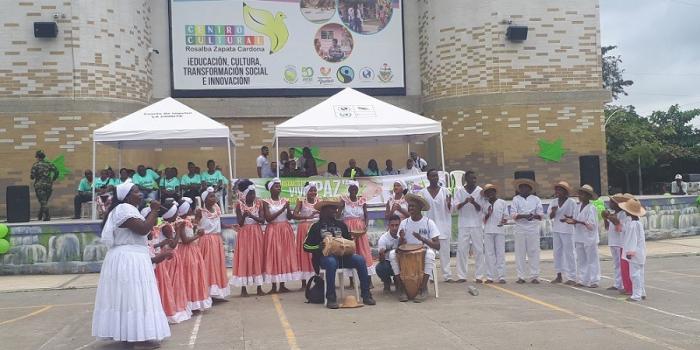
More than 8,000 Afro-Colombian survivors have been compensated in Urabá-Darién
In Urabá-Darién, according to the Unified Registry of Victims, with a court in March 2019, 102,948 victims of armed conflict are Afro-Colombian and 34 palenqueras, which corresponds to 29% of the consolidated general in this territory.

According to official figures, in Urabá Darién, 8,385 survivors of armed conflict, belonging to the black and palenqueras communities, have been compensated for different victimizing acts derived from armed conflict.
These actions, in terms of individual reparation, correspond to the integral reparation route, through the different measures established, of satisfaction, rehabilitation, and compensation.
Similarly, progress has been made in collective actions, through the established route to provide differential treatment to these black communities, palenqueras, of special protection as provided by Decree Law 4635 of 2011, which recognizes and establishes guidelines for address these groups, currently advancing with around 14 collective reparation processes, located mostly in the municipalities of Acandí, Unguía, Riosucio and Carmen del Darién, in the department of Chocó.
The ethnic diversity of the region, as well as access to the territories, have led to the implementation of tools and prior consultations, mechanisms that have facilitated the approach of these communities, thus enabling the strengthening of their community organizations, and impact on the territories.
"Within the framework of this new commemoration of the week of Afro-Colombian population that will be held in different regions of the country, this territorial is linked to different manifestations of recognition and visibility of cultural and social contribution of this population, in different commemorative and academic, to emphasize their rights and continue in the work of guaranteeing the restoration of the same, through the restitution and respect for their collective territory, dignity, guarantees of non-repetition, from the differential approach", said, Elizabeth Granada Ríos, director of Unit for the Urabá-Darién Victims.
(FIN/CYT/CMCLMY)






